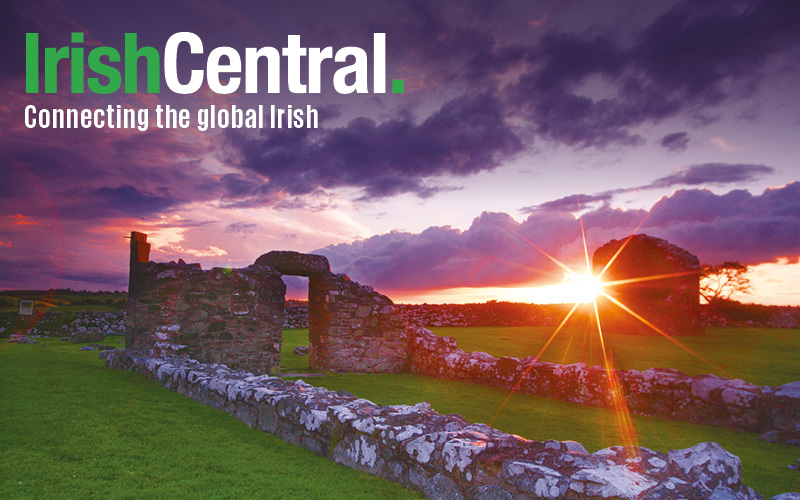Notre Dame’s former president, Father Theodore Hesburgh, who received Irish citizenship on St. Patrick’s Day 2012 on the campus from Irish Prime Minister Enda Kenny, has passed.
He died in the same week that Donald R. Keough, his great Notre Dame friend and ally and a former Coca Cola president, also passed. The two men played a huge role in transforming Notre Dame into one of the top colleges in America
Hesburgh, a legendary figure, was 97 years old and was a leading figure in the U.S. civil rights movement and an educator who was considered among the finest of the 20th century.
He transformed Notre Dame from a provincial academy to an academic and sporting powerhouse.
“We mourn today a great man and faithful priest who transformed the University of Notre Dame and touched the lives of many,” said Rev. John I. Jenkins, C.S.C., Notre Dame’s president in a statement.
“With his leadership, charisma and vision, he turned a relatively small Catholic college known for football into one of the nation’s great institutions for higher learning.
“In his historic service to the nation, the Church and the world, he was a steadfast champion for human rights, the cause of peace and care for the poor.
“Perhaps his greatest influence, though, was on the lives of generations of Notre Dame students, whom he taught, counseled and befriended. Although saddened by his loss, I cherish the memory of a mentor, friend and brother in Holy Cross and am consoled that he is now at peace with the God he served so well.”
The citizenship award is very rare, as it is not an honorary award and is given to those who do not qualify through ancestral rules.
Previous Irish citizenship recipients included former House Speaker "Tip” O’Neill and former Coca Cola president Donald R. Keough.
Hesburgh’s Irish roots are through his Irish mother, Ann Marie Murphy. He grew up in an Irish neighborhood in Syracuse, New York.
He was a member of the U.S. Civil Rights commission from 1957 and during the turbulent years of the 1960s and its chairman from 1969 to 1972 until he was fired by President Nixon because of his outspoken stance on racial equality.
Appointed by President Eisenhower to the historic civil rights commission, he was hounded down South when he went to investigate abuses. Death threats did not deter him or his fellow commissioners, even though they eventually ended up staying in army bases as nowhere else was safe.
As President Obama noted in a speech at Notre Dame, “There were six members of the commission. It included five whites and one African-American; Democrats and Republicans; two Southern governors, the dean of a Southern law school, a Midwestern university president, Father Ted.
“They worked for two years, and at times, President Eisenhower had to intervene personally since no hotel or restaurant in the South would serve the black and white members of the commission together. Finally, when they reached an impasse … Father Ted flew them all to Notre Dame where they eventually overcame their differences and hammered out a final deal.”
He served as Notre Dame's President for 35 years (1952–87), the longest tenure to date. He supervised dramatic growth, as well as a transition to coeducation in 1972.
During his term, the annual operating budget rose by a factor of 18 from $9.7 million to $176.6 million, the endowment rose by a factor of 40 from $9 million to $350 million, and research funding rose by a factor of 20 from $735,000 to $15 million. Enrollment nearly doubled from 4,979 to 9,600, faculty more than doubled 389 to 950, and degrees awarded annually doubled from 1,212 to 2,500.
Funeral arrangements are pending.




Comments